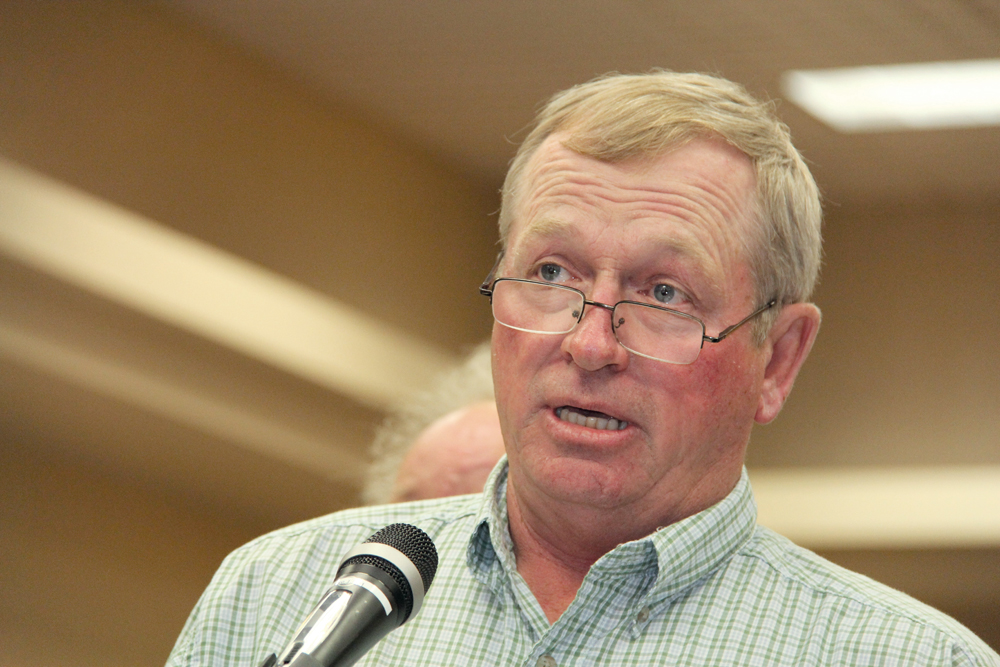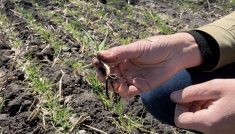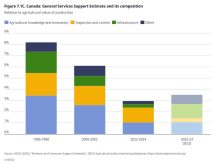Keystone Agricultural Producers president Bill Campbell expects a couple of topics to crop up as the organization starts this year’s tour of district meetings.
The federal target to reduce fertilizer nitrogen emissions by 30 percent by 2030 is near the top of that list.
[RELATED] Ottawa’s bid to cut fertilizer emissions being rushed, say farm groups
Read Also

Tie vote derails canola tariff compensation resolution at MCGA
Manitoba Canola Growers Association members were split on whether to push Ottawa for compensation for losses due to Chinese tariffs.
“I’m sure that will be front and centre in regards to producers,” Campbell said.
Producers will be able to have their say and get reports from the province’s biggest farm group between now and mid-December.
The debate has made more than one headline in the last year. While federal messaging maintains that the target will focus on incentives, fears of an eventual regulatory limit on fertilizer use have persisted in the ag sector.
At the same time, farm groups worry that the reductions target will lower production and conflict with goals to increase the nation’s agricultural exports. Arguments range from the timeline of the target (too quick, according to critics) to its structure (which critics argue should be based on emissions per unit of production rather than total emissions).
The issue has also caused a schism in the ag industry itself. Some raise arguments over the impact of the target, while other producers and researchers say the goal is realistic at current yield levels, assuming widespread adoption of technologies and philosophies like 4R nutrient management.
[RELATED] Province, KAP renew 4R agreement with Fertilizer Canada
District meetings will be an “opportunity in engagement in presenting some sound science data and some truthful information with regards to how this unfolds,” Campbell said.
“It is of huge concern with some of the conversations that have been circulated with regards to the inference of actual fertilizer reduction,” he added. “We need to be able to set a correct path moving forward.”
Other potential meeting topics include KAP’s continuing file on business risk management, as well as a number of recent government announcements including a recent promise to increase funded veterinary student seats at the Western College of Veterinary Medicine in Saskatchewan.
Earlier this fall, the province announced that Manitoba’s seats at the college would increase from 15 to 20 per year.
Campbell noted changes to AgriStability, including this summer’s increased compensation rate from 75 to 80 per cent, might also be discussed. That announcement was launched alongside news of the next five-year agricultural policy framework.
The provincial and federal governments announced consensus on the Sustainable Canadian Agricultural Partnership in July 2022 that starts in April 2023. The framework will come with a $500-million funding increase, some of which is earmarked for programs focused on ecological goods and services.
“We need to ensure that there is that information transfer so that producers can see whether it’s something that will fit for their operations,” Campbell said.
In particular, he pointed to programs looking at 4R nutrient management or incentives for enhanced efficiency fertilizers.
Meetings began with District 3 on Nov. 1 in Carman.
The 12 in-person meetings will run through November to Dec. 8. Producers can register for their regional meeting through the “Events” tab at www.kap.ca.
“We realize that [the meetings] are (a) foundational component of our grassroots organizational structure and it allows producers to come and network and bring forward issues that they have in their particular area, and it also allows the organization the opportunity to present the files and policies and advocacy work that it has been doing on their behalf,” Campbell said.
















